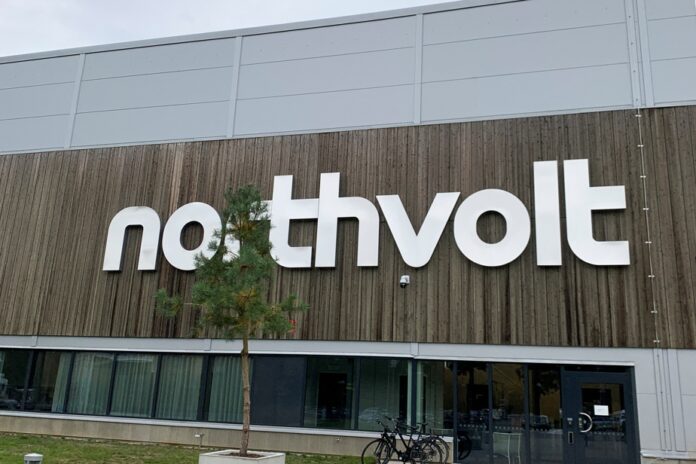Quebec is included in the steps taken by Northvolt, a well-known player in electrification in Europe, for a potential North American plant. This project, if carried out, would allow the Legault government to achieve an objective that it cherishes: to attract a cell manufacturer, the last step before assembling a lithium-ion battery.
Since the beginning of the year, the Swedish company has held at least four meetings with representatives of the Trudeau government. The most recent meeting was on March 28, according to the company’s listing on the federal lobbyists registry.
The Ministry of Innovation, Science and Economic Development was present at each stage, but the Ministry of Finance participated in the most recent meeting.
“Northvolt is investigating the possibility of building and operating a battery production [plant] in North America and is therefore in dialogue with the federal government to identify potential political and financial assistance,” the listing reads. from Northvolt.
On Friday, the Stockholm-based company did not respond to questions sent by La Presse seeking clarification on its procedures. The company is no stranger to Canada, counting the Ontario Municipal Employees Retirement System among its investors.
Interestingly, Northvolt’s listing states that it expects funding from Ottawa and Quebec. In fact, the “Quebec government” is the only provincial government identified in the information disclosed by the battery cell manufacturer.
From mining to battery recycling, the Legault government aims to attract companies for each stage of the Quebec battery industry. There is always a missing link: a cellar. Britishvolt and StromVolt, which dangled projects, backtracked last year. The two companies did not have firm contracts in hand with customers.
A lithium-ion battery found in an electric vehicle is in a way an assembly of individual batteries – the cells. These modules are placed in parallel and connected to each other to form a battery. The number and size of cells in a battery determine the amount of electricity it is able to store.
The picture is different with Northvolt; the start-up founded in 2015 is already a partner of Volvo, which owns Prevost and Novabus in Quebec. It also counts Volkswagen – which will build a battery plant in Ontario (see screen 10) – as well as BWM among its customers. She seems to have more credibility with the federal government.
“Yes, because they have clients,” said a federal government source familiar with the matter, but who is not authorized to speak. That’s the difference. The manufacture of cells is a step, but it must also be sold. »
The Legault government has not commented on the steps of Northvolt, which is still not registered in the Quebec register of lobbyists. On the occasion of the inauguration of the battery factory built by Lion Electric in Mirabel on Monday, the Minister of Economy, Innovation and Energy, Pierre Fitzgibbon, was asked about the possibility of see the province convince a cell manufacturer to come in.
“I think so,” Mr. Fitzgibbon replied, without offering a timeline or potential candidates.
According to our information, the industrial and port park of Bécancour – the place favored by Quebec to lay the foundations of the battery sector – would no longer have enough space to accommodate a complex like those of the Swedish cellier. It was not possible to know which places could be privileged.
Beyond Northvolt’s North American intentions, the question of financing is likely to dictate the pace of things. The large complexes for assembling batteries force the orders of government to loosen the strings of their purse. For the battery plant that Volkswagen will build in Ontario on 1,500 acres (about 6 km2), Ottawa is ready to pay 13 billion over a decade.
This does not take into account the half a billion dollars in direct incentives for the company granted by the Ontario government. The province will also spend several hundred million to build roads, utilities and other infrastructure in St. Thomas, south of London.















